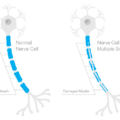As I pulled out of my neighborhood onto the main road in my town, a truck whipped up beside me the man leaning his head out the window, shooting me the bird. We were at a stop light but apparently I hadn’t sped to the stoplight fast enough for him. My initial reaction was to return the favor- two can play at the nasty, indignant driver game. But I was on my way to yoga class, so I decided to try practicing patience instead. It wasn’t easy. I was startled by the aggressiveness of his behavior over something so trivial. I knew I hadn’t done anything wrong but his anger and negativity affected me more than I was comfortable with. “Maybe he’s just having a terrible day,” I thought. “Who gets so hateful about something so insignificant?”
You may have heard the old chestnut, “Holding onto anger is like drinking poison and expecting the other person to die.” It’s often attributed to Buddha or Nelson Mandela though it’s not clear who said it first. Versions of this quote abound because of the profound truth that anger and resentment can make us physically ill. While many religions preach forgiveness as a model for salvation or enlightenment, the science actually agrees that letting go of blame can make us healthier.
Forgiving Others
There are many theories about why it’s so hard for humans to forgive. It may be that we are not very good at living in the present moment, always worried about the past where someone may have wronged us or anxious about the present where someone may wrong us again. Or perhaps it is that we are simply wired to remember what has hurt us so that we can avoid it. For whatever reason, and no matter how counterintuitive it may feel, letting go of anger and forgiving may be one of the best things we can do for ourselves.
This can be a real challenge for many of us. Especially depending upon the type of offense and the level of hurt. It didn’t take me long to forgive the man in the truck for his obscene gesture. But I wondered how long it would take him to forgive me for the offense of not driving exactly how he wanted me to.
Loving people who are not loving to you is a tall order- sometimes a Herculean, or rather Mother Teresan, task. So why should we do it? Doesn’t it just make me a sucker to forgive someone who has wronged me?
According to the Mayo Clinic, “Forgiveness doesn’t mean that you deny the other person’s responsibility for hurting you, and it doesn’t minimize or justify the wrong. You can forgive the person without excusing the act.”
If being the better person isn’t enough for you, how about being a healthier person?
A study published in the American Heart Association Journal shows a link between coronary heart disease and anger, particularly in men. “In other words, we observed a gradient in CHD risk, with evidence of increased risk even among men with apparently “average” levels of anger.”
Florida State University found a correlation between forgiveness and improved cardiovascular function.
And the European Heart Journal published a meta-analysis that concluded that outbursts of anger are associated with the short-term risk of heart attacks, strokes, and disturbances in cardiac rhythm.
If that’s not convincing enough, letting go of anger and resentment can also help with anxiety and mental health. Concordia University found that anger has a powerful and serious health consequences “for millions of individuals around the world who suffer from generalized anxiety disorder, anger is more than an emotion; it’s an agent that exacerbates their illness.”
Forgiveness can also make your life feel easier. A study done at Erasmus University showed that holding onto grudges can literally weigh you down.
“Metaphorically, unforgiveness is a burden that can be lightened by forgiveness; we show that people induced to feel forgiveness perceive hills to be less steep (Study 1) and jump higher in an ostensible fitness test (Study 2) than people who are induced to feel unforgiveness. These findings suggest that forgiveness may lighten the physical burden of unforgiveness, providing evidence that forgiveness can help victims overcome the negative effects of conflict.”
How Can We Forgive?
One of the main things we can do to release the negative feelings associated with holding a grudge is to cultivate empathy. I tried to do that with the rude driver and I try to do this with anyone in my life exhibiting behaviors I don’t understand or find off-putting. I don’t know what the truck driver was going through that day. Perhaps his girlfriend had just broken up with him and he wanted to lash out at someone. Maybe the person who parked their car so terribly has a sick child at home and was too distraught and hurried to be more considerate. We never know what other people are going through. As another favorite old chestnut says, “Be kind, for everyone you meet is fighting a hard battle.”
Another way to practice forgiveness is to let go of expectations. Expectations are the root of all conflict. Expecting other people to think and act like you, to understand what you understand, to feel how you feel, to look at the world as you look at it- these are all ways we place unfair burdens on others.
Practicing empathy and letting go of expectations for others are just part of the forgiveness process. We must also learn how to do these things for ourselves.
Forgiving Yourself
If you’re anything like me, you may find forgiving yourself to be exponentially harder than forgiving others. According to University of California, Berkeley, “The ability to forgive oneself for mistakes, large and small, is critical to psychological well-being. Difficulties with self-forgiveness are linked with suicide attempts, eating disorders, and alcohol abuse, among other problems.”
This can be particularly difficult for women. According to study published in the Spanish Journal of Psychology, guilt is significantly higher in women. The same study claims that the problem is not that women feel more guilt but that men don’t feel enough. But that’s a topic for a different article. What can we do about all this guilt? Simply, we can forgive ourselves.
How exactly do we do that?
Steps to Forgiveness
Feel the feelings
The Greater Good website from the University of California, Berkeley explains, “Research suggests that criminal offenders who recognize that doing bad things does not make them bad people are less likely to continue engaging in criminal activity. And remorse, rather than self-condemnation, has been shown to encourage prosocial behavior. Healthy self-forgiveness therefore seems to involve releasing destructive feelings of shame and self-condemnation but maintaining appropriate levels of guilt and remorse—to the extent that these emotions help fuel positive change.”
Take responsibility and apologize if the situation warrants it
“In order to forgive ourselves, we first have to admit to ourselves that we blew it. We have to take ownership and acknowledge the flaw or mistake—and that feels almost counter to our sense of survival! It’s how we learn and grow.” – Psychology Today
Practice empathy for yourself and the person you wronged
You are human and make mistakes. The person you wronged is human and makes mistakes, too.
Learn from the experience. One of the great things about feeling bad is that we don’t like it. In fact, we go to great lengths to avoid feeling bad. And that’s exactly what makes feeling bad, making mistakes, such a powerful teacher. Our mistakes are painful so that we may learn from them. Try not to miss the lesson in whatever situation you find yourself in so that you don’t have to relearn it again in an even more painful situation.
Ask for help if you need it
According to Joretta L. Marshall, PhD, a United Methodist minister and professor of pastoral care at the Eden Theological Seminary in St. Louis, it can be done with or without formal therapy. “But not without community of some kind. It is in the context of our relationships (whether with therapists, pastors, counselors, churches, families, and friends) that we experience the grace of being forgiven and forgiving others.”
We Need Your Help
More people than ever are reading Hormones Matter, a testament to the need for independent voices in health and medicine. We are not funded and accept limited advertising. Unlike many health sites, we don’t force you to purchase a subscription. We believe health information should be open to all. If you read Hormones Matter, like it, please help support it. Contribute now.
Yes, I would like to support Hormones Matter.
Photo by Saad Chaudhry on Unsplash.
This article was published originally on August 11, 2016.















